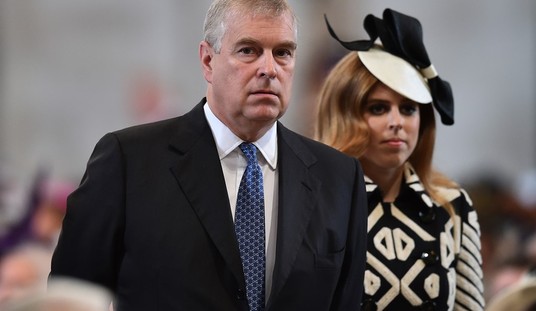There’s sweet irony in the possibility that Democrats ended up losing to Trump partly because Obama was … too soft on Russia. This Politico piece makes a solid case, though, that by the time 2016 rolled around, Russia was well practiced in the art of screwing with western elections and emboldened to meddle in the U.S. campaign by President Creampuff’s provocative weakness.
Why was Obama so reluctant to stand up to Putin? Was it a simple character flaw or more of a strategic calculation?
POLITICO spoke with more than a dozen current and former officials from across the national security spectrum, including intelligence agencies, the State Department and the Pentagon. Almost all said they were aware of Russia’s aggressive cyberespionage and disinformation campaigns — especially after the dramatic Russian attempt to hack Ukrainian elections in 2014 — but felt that either the White House or key agencies were unwilling to act forcefully to counter the Russian actions.
Intelligence officials “had a list of things they could never get the signoffs on,” one intelligence official said. “The truth is, nobody wanted to piss off the Russians.”…
“The reports from sources deep inside the Russian government were alarming,” one current U.S. official who served under the Obama administration said. “We started getting stuff in April, May [of 2014] that was extraordinary about the extent of the threat and the capacities the Russians were building.”
The biggest red flag was Russia’s attempt to launch a cyberattack on Ukraine as the votes in the 2014 presidential election were being tallied. The attack was thwarted but it proved how bold the Kremlin might be willing to be to screw with a western nation’s democratic process. Still, says Politico, the White House did little to brush Putin back: “[T]he administration still was reluctant to engage in more forceful counterintelligence strategies against the Kremlin, including more aggressively tracking and tailing Russian operatives within the United States, according to five of the officials who spoke to POLITICO.” Some Obama defenders claim this was less a matter of White House reluctance than of reluctance down the chain. U.S. intelligence was allegedly eager to respond to Putin but the State Department and Pentagon were more hesitant, as their agencies would bear the brunt of the measures and countermeasures to come. Even after U.S. intelligence concluded in 2016 that Putin was now interfering in America’s own presidential campaign, though, the White House still hesitated:
After compiling a list of potential retaliatory options in the summer of 2016 — including kicking out more than 100 Russian diplomats, one official told POLITICO — the pushback from national security agencies was so great and varied, the NSC official said, that for months nothing was done.
Obama’s heard this criticism before, including from his own party, about having been too timid towards Russia. By summer 2016, his options were bad. If he had exposed Russian operations against Democrats early in the campaign, Republicans would have howled that he was trying to sabotage Trump by implicitly aligning him with Putin. If Obama had taken the next step and ordered reprisals against Russia for the DNC/Podesta operations, the same reaction would have been amplified: Not only was he picking a fight with the Kremlin over some supposed anti-Democrat operations, he was giving Hillary the benefit of a “rally ’round the flag” effect in a new standoff with Russia. If she had won the election, Republicans would have called it dirty pool, a president exploiting his foreign policy power to assist the nominee of his own party. The significance of today’s story, though, is how it pushes the timeline back. Obama had ample notice of Russia’s increasingly brazen interest in messing with western elections. If he had been bolder in punishing Putin sooner for it, Russia might never have dared to interfere in our own election last year.
But there’s a strategic element too, of course:
"The truth is, nobody wanted to piss off the Russians." Why? Big piece of the story, missing from this article: P5+1 negotiations with Iran. https://t.co/3pL2Vs2I8i
— John Tabin (@johntabin) August 14, 2017
Right. Russia could have made all sorts of trouble internationally for a lame-duck president who was focused on brokering a nuclear deal with Iran. Moscow could have escalated in Syria (which it eventually did); it could have made a rash move on eastern Europe, calling Obama’s bluff on NATO; and most importantly, it could have tried to wreck the fledgling Iran deal. Obama would have had a freer hand to deal harshly with Putin if he had abandoned his dream of some major diplomatic step with Iran that might eventually lead to detente with the United States. He had his heart set on that as his major foreign policy “achievement,” though, and he was unwilling to do anything that might jeopardize Russian cooperation in it. Result: Putin and Iran have an increasingly strong hold on Syria; the U.S. now has a president whose commitment to NATO is shakier than any of his predecessors’; and Trump looks set to tear up the Iran deal sooner rather than later, undoing Obama’s work and setting the two countries on a path to confrontation. That’s an awfully steep price to pay for a nuclear agreement that was temporary by design and is apt to end up being much shorter-term than Obama anticipated. You want to know “how you got Trump,” as conservatives like to say to liberals? Obama’s passivity on Russia is part of it.








Join the conversation as a VIP Member